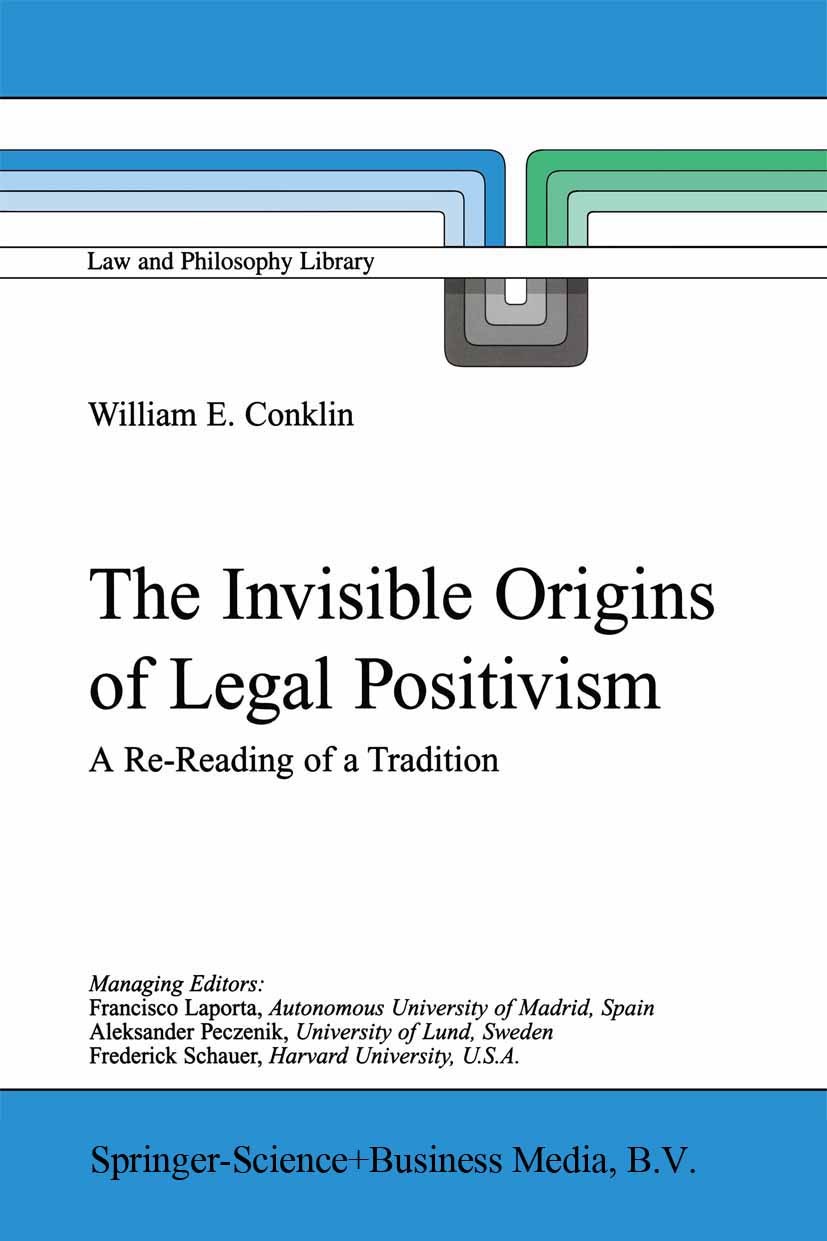| 書(shū)目名稱(chēng) | The Invisible Origins of Legal Positivism |
| 副標(biāo)題 | A Re-Reading of a Tr |
| 編輯 | William E. Conklin |
| 視頻video | http://file.papertrans.cn/913/912399/912399.mp4 |
| 叢書(shū)名稱(chēng) | Law and Philosophy Library |
| 圖書(shū)封面 |  |
| 描述 | Conklin‘s thesis is that the tradition of modern legalpositivism, beginning with Thomas Hobbes, postulated different sensesof the invisible as the authorising origin of humanly posited laws.Conklin re-reads the tradition by privileging how the canons share aparticular understanding of legal language as written. Leadingphilosophers who have espoused the tenets of the tradition haveassumed that legal language is written and that the authorising originof humanly posited rules/norms is inaccessible to the written legallanguage. Conklin‘s re-reading of the tradition teases out how each ofthese leading philosophers has postulated that the authorising originof humanly posited laws is an unanalysable externality to the writtenlanguage of the legal structure. As such, the authorising origin ofposited rules/norms is inaccessible or invisible to their writtenlanguage. .What is this authorising origin? Different forms include an originaryauthor, an a priori concept, and an immediacy of bonding betweenperson and laws. In each case the origin is unwritten in the sense ofbeing inaccessible to the authoritative texts written by the officialsof civil institutions of the sovereign state. .Conklin se |
| 出版日期 | Book 2001 |
| 關(guān)鍵詞 | Aristotle; Gesch?ftsordnung; Grundnorm; H; L; A; Hart; Jean-Jacques Rousseau; John Austin; Polis; Rousseau; Th |
| 版次 | 1 |
| doi | https://doi.org/10.1007/978-94-010-0808-2 |
| isbn_softcover | 978-1-4020-0282-3 |
| isbn_ebook | 978-94-010-0808-2Series ISSN 1572-4395 Series E-ISSN 2215-0315 |
| issn_series | 1572-4395 |
| copyright | Springer Science+Business Media Dordrecht 2001 |
 |Archiver|手機(jī)版|小黑屋|
派博傳思國(guó)際
( 京公網(wǎng)安備110108008328)
GMT+8, 2025-10-25 02:36
|Archiver|手機(jī)版|小黑屋|
派博傳思國(guó)際
( 京公網(wǎng)安備110108008328)
GMT+8, 2025-10-25 02:36


